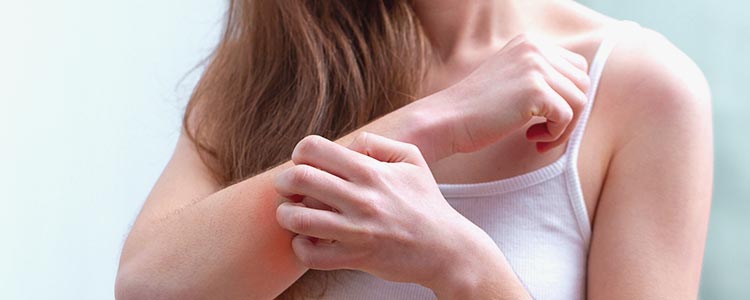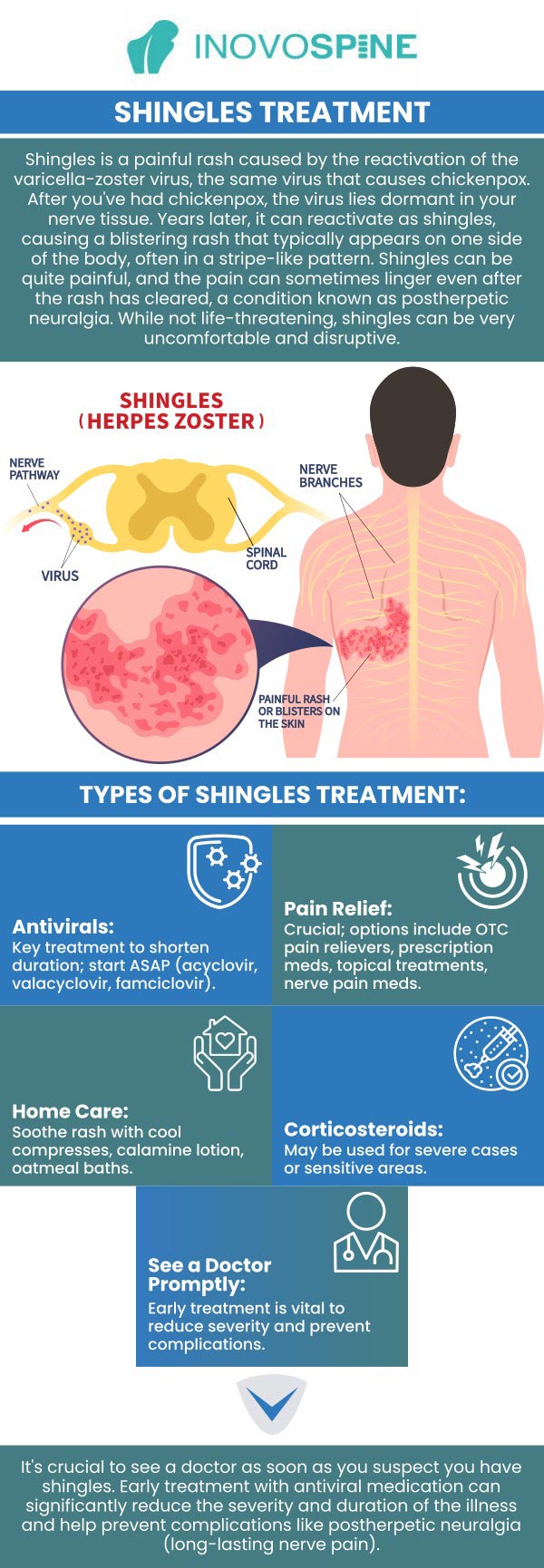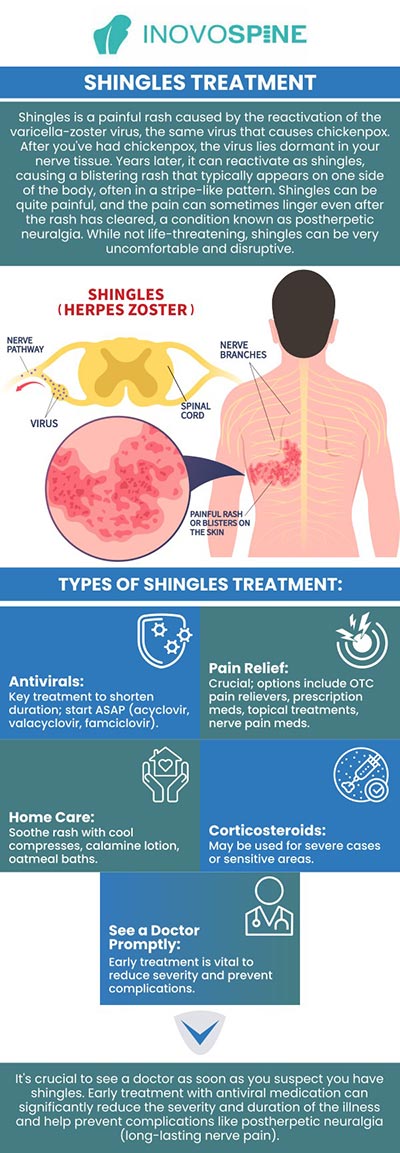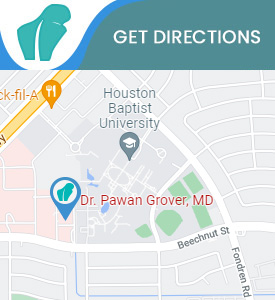What Usually Triggers Shingles?
Shingles is a painful, itchy rash caused by a viral infection that creates a breakout of severe rashes or blisters on the skin. Stress, medication, and specific medical conditions can trigger the virus and cause shingles symptoms. If you have shingles or suspect that you may have them, connect with Dr. Pawan Grover, MDPA, a board-certified specialist at InovoSpine who specializes in treating shingles pain and will help you find relief. For more information, contact us or book an appointment online. We are conveniently located at 1140 Business Center Dr, Suite 110, Houston TX 77043.




Table of Contents:
What usually triggers shingles?
What are the first signs of shingles?
How contagious is shingles?
How do you take care of yourself with shingles?
How can Dr. Pawan Grover at InovoSpine help prevent shingles triggers?
Shingles is a painful and uncomfortable viral infection that causes a rash of small blisters to develop on the skin. This condition is caused by the varicella-zoster virus, which is the same virus that causes chickenpox.
While anyone who has had chickenpox may develop shingles, there are certain factors that can trigger the reactivation of the virus. This includes:
– A weakened immune system. This can occur due to a number of factors, including medical conditions such as HIV/AIDS, cancer, or autoimmune disorders. Stress and anxiety can also weaken the immune system.
– Age. Shingles is more common in people over the age of 50 as the immune system weakens over time. Additionally, those who had chickenpox at a very young age are also more likely to develop shingles later in life.
– Certain medications. This includes drugs that suppress the immune system, such as chemotherapy drugs or steroids.
– Physical trauma or injury. This includes injuries such as burns or cuts, as well as more minor trauma such as sunburns. The virus can lie dormant in nerve tissue for years or even decades, and physical trauma can activate the virus and lead to a shingles outbreak.
– Exposure to the varicella-zoster virus. Such as through contact with someone with chickenpox or shingles. It’s important to note, however, that shingles cannot be contracted directly from someone with shingles or chickenpox. Instead, contact with the fluid inside shingles blisters is what causes the disease.
The first signs of shingles typically appear as a rash or a cluster of blisters on one side of the body or face. This rash is usually accompanied by pain, burning, or tingling sensations where the rash appears on the skin. These symptoms may occur a few days before the rash appears and can last for several days after the rash has gone.
In some cases, people may also experience fever, chills, headache, and fatigue.
If you suspect that you may have shingles, it’s important to seek medical attention as soon as possible to start treatment. Although the condition usually resolves on its own within a few weeks, early treatment can help reduce the severity and duration of symptoms.
Shingles is contagious, especially during the blistering phase when the virus is present in the fluid inside the blisters. The virus can be transmitted through direct contact with the fluid from the blisters, or through breathing in airborne particles from the blisters.
When someone with shingles encounters a person who has never had chickenpox, that person can catch chickenpox but not shingles. People who have never had chickenpox or who have not been vaccinated against it are at risk of contracting the virus from someone with shingles.
If you have shingles, it’s important to take precautions to avoid spreading the virus to others. This includes avoiding close contact with people who have not had chickenpox, covering the rash with clothing or a bandage, and washing your hands frequently.
While there is no cure for shingles, there are various ways to manage your symptoms and take care of yourself throughout the duration of your infection. This includes:
– Taking medication as prescribed by your healthcare provider. Antiviral medications such as acyclovir, valacyclovir, or famciclovir can help speed up the healing process and reduce the severity of symptoms.
– Applying cool compresses. Applying a cool compress, such as a moistened cloth, can help reduce the itching and burning sensation associated with shingles.
– Avoid scratching or picking at blisters. It’s important to resist the urge to scratch or pick at shingles blisters as this can lead to an increased risk of infection and scarring.
– Practicing good hygiene. Wash your hands regularly and keep the affected area clean to prevent the spread of the infection.
– Getting plenty of rest. Shingles can be exhausting, both physically and mentally. Make sure to get plenty of rest and avoid activities that put unnecessary strain on your body.
– Practice stress management. Stress can weaken your immune system and aggravate the symptoms of shingles, so take time to practice stress-reducing techniques such as deep breathing, meditation, or yoga.
– Eat a healthy diet. Consume meals that are rich in fruits, vegetables, and lean proteins as these can help strengthen your immune system and promote healing.
– Avoid exposure to sunlight. Sunlight can aggravate the symptoms of shingles so it’s important to avoid direct exposure and use a broad-spectrum sunscreen with an SPF of 30 or higher if you need to go outside.
Shingles is caused by the reactivation of the varicella-zoster virus, which also causes chickenpox. Dr. Pawan Grover, MDPA, at InovoSpine in Houston, TX, helps patients understand what typically triggers shingles and offers advice on how to prevent flare-ups. While the virus remains dormant in the body after a chickenpox infection, certain factors can reactivate it, leading to shingles.
Common triggers for shingles include stress, a weakened immune system, certain medications (like steroids), and aging. People over 50 are more likely to develop shingles due to natural changes in the immune system. Other factors, such as illnesses or trauma to the skin, can also trigger an outbreak.
Dr. Grover emphasizes the importance of managing stress, maintaining a healthy immune system through proper nutrition, exercise, and sleep, and staying up to date with vaccinations to reduce the risk of shingles. If you have questions about our available shingles treatment or any of our other services, contact us at Inovo Spine or book online to schedule an appointment. Our team would be happy to provide the information you need to feel comfortable and confident in the treatment you decide upon. We are conveniently located at 1140 Business Center Dr, Suite 110, Houston TX 77043. We serve patients from Houston TX, Hedwig Village TX, Meadows Place TX, Missouri City TX, Hunters Creek Village TX, Spring Valley Village TX and surrounding areas.

Additional Service You May Need
- Regenerative Medicine
- Spinal Arthritis
- Diagnostic Mapping
- Interventional Pain
- Minimally Invasive
- Spine Pain
- Radiofrequency Ablation
- Spinal Cord Stimulation
- Physical Rehabilitation
- Facet Joint Pain
- Herniated Discs
- Muscle and Joint Pain
- Post-Laminectomy Pain
- Myofascial Pain
- Peripheral Nerve Pain
- Regional Pain Syndrome









